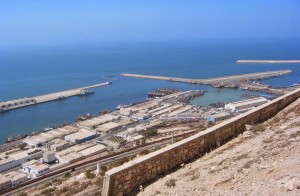
By Libya Herald reporters.
Benghazi/Tunis, 3 March 2017:
The Libyan National Army has admitted that it lost control today of the part of oil terminal town of Ras Lanuf to the Benghazi Defence Brigades (BDB). Speaking this evening, LNA spokesman Colonel Ahmed Mismari said that the town’s hospital and a number of other locations were in BDB hands following this morning’s attack which he admitted had come as a surprise. He also accused the BDB of murdering an LNA officer who had been wounded in earlier fighting during the day and taken to the hospital. The BDB had killed him when it took over the hospital, Mismari said. He disclosed that another three officers had been killed in fighting during the day.
LNA sources, however, denied that the nearby terminal town of Sidra was also in BDB hands, despite numerous reports to that effect stating that the LNA had pulled back.
In the most determined attempt to date by the BDB to wrest the control of the two ports from the LNA, its offensive kicked off at dawn, with columns of vehicles crossing the desert to attack the two places. According to Mismari, the BDB forces came from three directions, initially travelling in small groups of just two of three vehicles before amassing outside the towns.
As with previous BDB attacks in December and February, they were met with air strikes by the LNA, with jets pounding one column of vehicles at Nufliya, 50 kilometres east of Sidra.
Despite the bombing, the BDB forces, comprising several units originally from Benghazi but now based in Jufra, were said to have continued advancing to within seven kilometres Sidra by nightfall.
Meanwhile another BDB column, including units of the former Petroleum Facilities Guard of Ibrahim Jadhran, briefly captured the small airport south of Ras Lanuf. Pictures posted on social media showed Osama Jadhran, Ibrahim Jadhran’s hardline Islamist brother, with BDB commander Mustafa Sharksi next to a captured Mi35 attack helicopter.
Hours later, though, reinforcements from the LNA’s 152 battalion arrived and staged a counter-attack, recapturing the airport.

In his statement, Mismari claimed that the BDB were being supported by a second force, but did not explain who it was. He also accused Turkey and Qatar of having rearmed and re-equipped the BDB.
Casualty reports from both sides were hard to tally as fighting spread across the desert expanse south of the ports. The National Oil Corporation announced that, despite the fighting, the ports remained open,although marine tracking agencies showed no tankers at the ports.
Condemnation of the attacks came from the Presidency Council in Tripoli which denied it had any connection with them.
It is the third offensive in as many months by BDB, which is formed by militiamen from Libya’s second city who were part of the hardline Benghazi Revolutionaries Shoura Council (BRSC) but later forced out by the LNA. Many have been grouped around Waddan and Hun, particularly at Jufra air base, which is technically controlled by Misratan forces.
The brigades, backed by elements of the Petroleum Facilities Guard formally under the control of Ibrahim Jadhran, are closely allied to Tripoli’s would-be government of Khalia Ghwell, but in reality an independent force of their own. Last year they tried, unsuccessfully, to break through to BRSC forces surrounded by the LNA in Benghazi.
In his statement this evening, Mismari said that there would be a counter-offensive codenamed Baraq Al-Saaq tomorrow, Saturday, to recapture all of Ras Lanuf and crush the BDB once and for all. Air strikes would continue, he warned, advising civilians in Ras Lanuf, Brega and Ajdabiya not to leave their homes.
He also disclosed that following the attack on the oil terminals, a number of pro-BRSC sleepers in Benghazi had taken to the streets of Benghazi resulting in fresh clashes there. He accused Tukey and Qatar if providing the militants in the city with guns, ammunition and vehicles.
Whether the BDB and its allies will continue their offensive is unclear, as is any damage to the confidence of Libya’s oil industry. The attack comes just as NOC chief Mustafa Sanalla had been highlighting production gains, which hit 700,000 barrels per day in February. Last week he signed a deal with Russian state oil giant Rosneft, hoping it will herald the return of more international oil companies to Libya. However, it was reported today that NOC had pull all its staff out of the two terminals.






